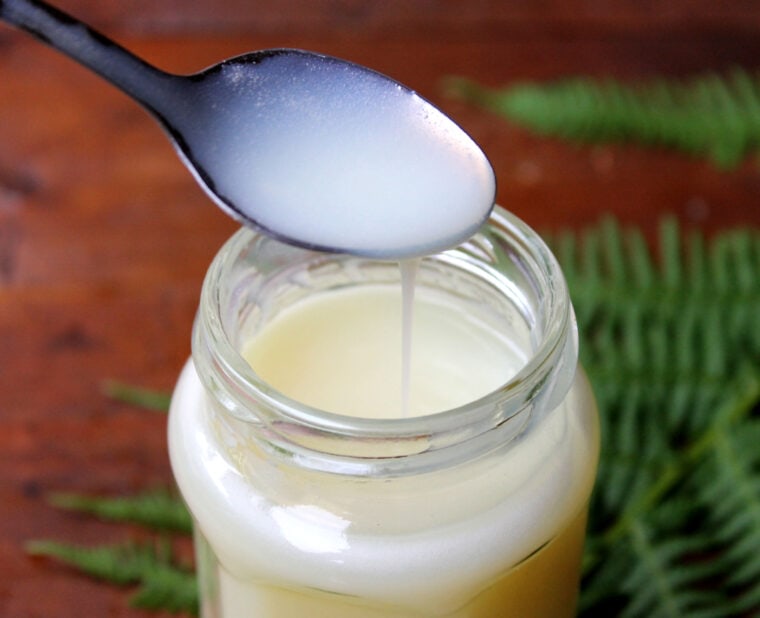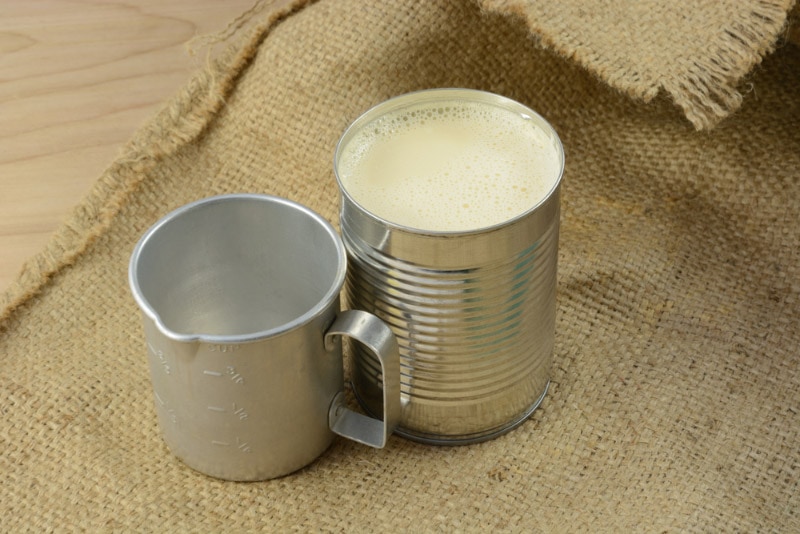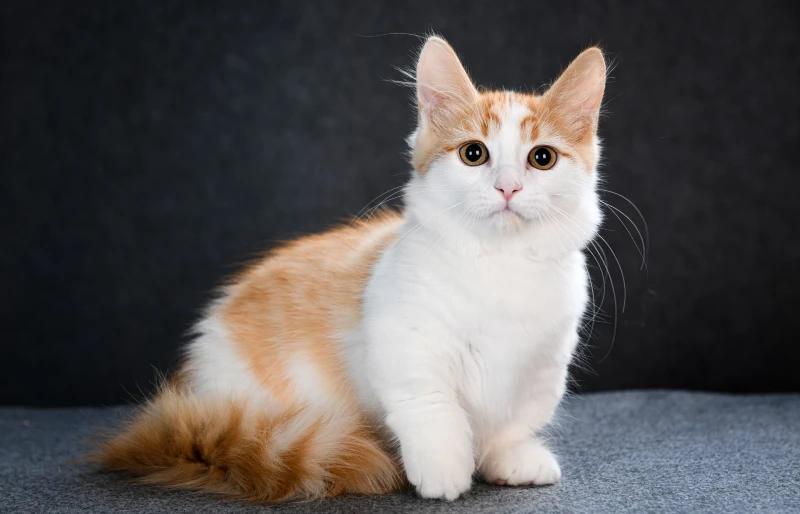
Click to Skip Ahead
Cats lapping milk from a saucer is a common image—we see it in movies, TV, and even children’s books.
Many cats seem to like dairy products, but milk is not recommended for cats because it’s known to cause stomach upset. But what about evaporated milk?
Evaporated milk is even less suitable than regular cow’s milk, so you should never offer any to your cat. Here, we discuss why dairy isn’t good for cats, especially evaporated milk, and healthier options for your pet.
What Exactly Is Evaporated Milk?
Evaporated milk is exactly what its name says. A portion of milk is heated until more than half of the water naturally found in the milk (usually 60%) evaporates. Then, the milk is homogenized (the process that ensures that the milk stays mixed without cream rising to the top), canned, and sterilized by heat, a typical part of any canning procedure.
Unlike regular milk, evaporated milk has a long shelf life and can be edible for up to 2 years when unopened. It can come in handy if you run out of milk, and you need to put something in your tea or coffee!

Why Can’t Cats Drink Milk?
Besides the fact that many people enjoy milk with cereal or for dipping cookies into, milk provides us with certain nutritional benefits. But the same can’t be said for cats because most cats are lactose intolerant. They don’t have the lactase enzyme in their gastrointestinal tract that aids in digesting the natural sugar found in milk (lactose). Milk with lactose can cause diarrhea, vomiting, and stomach pain in many cats.
While it’s true that not all cats are lactose intolerant, milk doesn’t benefit them in any real way, so it’s not worth the risk.
According to PDSA, a cat drinking one saucer of milk is like a human eating an entire 12-inch pizza in addition to all their usual meals. That would not be a healthy option for a person, so milk is not the healthiest option for cats. Milk is also too full of fat to be beneficial for cats, and regular consumption can lead to obesity.
Kittens and Milk
Kittens are supposed to drink milk, but it should only be their mother’s milk or special kitten formula. The latter is typically used in foster care situations for orphaned kittens or those that refuse to nurse.
Kitten formula can also be used for convalescing cats, nursing mothers, and senior cats. Kittens have more lactase enzymes than adult cats, but cow’s milk can still cause severe diarrhea, which can quickly lead to dehydration.

Cats and Evaporated Milk
Now that you have a basic understanding of why giving cow’s milk to cats isn’t a good idea, you should also understand why evaporated milk is unsuitable for cats.
It’s essentially a concentrated form of milk, so the sugars, fats, and lactose are also more concentrated, which will likely lead to stomach upset. It’s highly recommended that you don’t give your cat evaporated milk of any kind.
Can Cats Have Condensed Milk?
Condensed milk is essentially the same thing as evaporated milk except that it has added sugar, about 40% to 50% or more!
If evaporated milk is worse for cats than regular cow’s milk, condensed milk is even worse than evaporated milk. The added sugar amount is high, which cats might have difficulty digesting. Cats also can’t taste anything sweet, so they won’t get any benefit at all.
Cats will potentially experience vomiting, diarrhea, and stomach upset if they eat something with added sugar and lactose. Consistently giving a cat sugar can also lead to obesity, diabetes, and dental issues.

Alternatives to Evaporated Milk
Cats don’t need milk because it doesn’t benefit them. Constant access to clean water is all that a cat needs to drink to remain healthy.
If you’re unsure if your cat is drinking enough water, place a few water bowls around your home in different locations. Note that you’ll need to clean these bowls and refill them with fresh water every day.
Many cats prefer drinking from running water, so consider investing in a cat water fountain. Some cats will substantially increase the amount of water that they drink when offered a fountain. For others they like to drink out of a glass on your bedside table or other high up place.
If you need to increase the amount of water your cat is drinking you can try adding a little to their wet food. As an occasional treat using the cooled water from boiling a chicken breast is appetising to most cats.
For treats, aim for something made specifically for cats, like lickable treats. Many cat owners use these when attempting to do something relatively unpleasant to their cat, like nail trims.
Before feeding any human foods to your cat, speak to your vet first. If your cat has a sensitive stomach or any ongoing medical issues, you should always check in with your veterinarian before changing your cat’s diet.
Conclusion
Giving any milk to your cat is not recommended, especially evaporated or condensed milk. Evaporated milk is essentially twice as bad as regular milk. Since cats won’t gain any real nutritional value from it, it’s not worth giving it to them.
Stick with water, and if you’re eager to give your cat a nice treat, purchase something made just for cats.
You can also try giving them human food, as long as it’s not seasoned and your vet tells you that it’s okay. We all love treating our cats, and it’s fine to do so on occasion, just as long as it’s safe for them.
See also:
- Can Cats Drink Coconut Milk? Vet-Reviewed Nutrition Facts & FAQ
- Can Cats Drink Dog Milk? Vet-Reviewed Facts, FAQ & Advice
Featured Image Credit: Maria Popa Photo, Shutterstock







